Recently, the list of approved projects for the 2025 National Social Science Fund Annual Projects has been released. Liaoning University (LNU) has been approved for 14 National Social Science Fund Annual Projects, including one key project, eight general projects, and five youth projects. The number of approved projects ranks first among provincial universities in Liaoning Province and second among all universities in Liaoning. They cover 10 disciplines, namely Theoretical Economics, Applied Economics, Political Science, Law, Sociology, Archaeology, Chinese Literature, Linguistics, Journalism and Communication, and Management. These projects are distributed across seven teaching and research units, with three of them in the School of Economics, three in the School of Public Administration, two in the School of Chinese Language and Literature, two in the Faculty of History, two in the Law School, and one each in the School of Business and the School of Journalism and Communication.
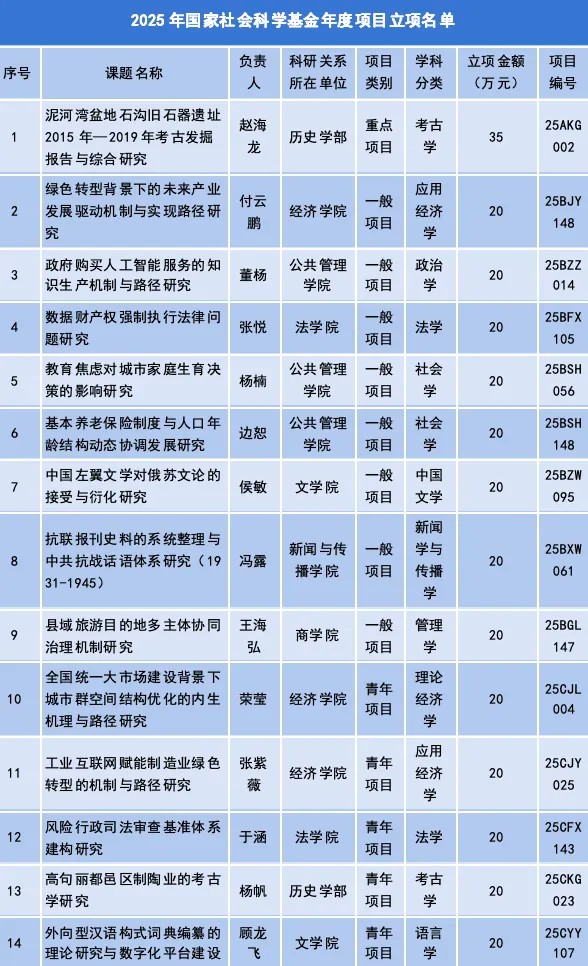
Introduction of Approved Projects
Project Name: Archaeological Excavation Report and Comprehensive Study of the Shigou Paleolithic Site in the Nihewan Basin (2015-2019)
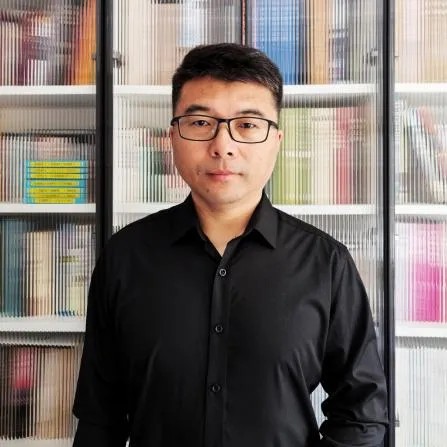
Introduction to the Project Leader: Zhao Hailong, Professor and Doctoral Supervisor at the School of Archaeology and Museology, Faculty of History, Liaoning University. He currently serves as a Council Member of the Chinese Archaeological Society and Deputy Secretary-General of the Paleolithic Archaeology Professional Committee of the Chinese Archaeological Society.
Project Category: Key Project
Project Introduction: The Nihewan Basin is located at the northern end of the Fenwei Graben in North China and is known as the Oduvai Gorge of the East. It houses more than 40 early human sites dating back over a million years, representing the earliest record of Homo erectus migrating out of Africa and reaching northern China. Among these, the Shigou Site underwent five consecutive years of excavation. Dating back to 1.6-1.1 million years ago, it features extremely thick stratigraphic deposits, multiple cultural layers, and over 3,000 cultural relics. The fossils are well-preserved with clear traces, and the stone tools are made from diverse raw materials which come in various types. Additionally, there is a rare natural gully relic scattered with a large number of fossils and stone tools. The archaeological achievements at the Shigou Site are of great significance for the exploration of the environmental adaptation and survival strategies of early humans in northern China during the Early Pleistocene. Based on the archaeological excavation results, this research topic conducts studies from perspectives and core concepts such as quatenary mammals, zooarchaeology, pollen analysis, typology of stone artifacts and stone tool refitting research. It also analyzes microwear and the sources of stone materials through simulated experiments.
Research Directions of the Leader: Field archaeology, experimental archaeology, Paleolithic archaeology, jade and stone tool craftsmanship, etc.
Main Achievements of the Leader: He has participated in and presided over more than 20 proactive archaeological projects of the State Administration of Cultural Heritage and rescue archaeological projects at all levels, such as the Three Gorges Water Conservancy Project and the South-to-North Water Diversion Project. He has presided over and completed one key research and development plan project of the state, one general project of the National Social Science Fund, and one social science fund project of Hebei Province. He has published more than thirty articles in journals such as Cultural Relics, Archaeology, Quaternary Sciences, and Acta Anthropologica Sinica.
Project Name: Research on the Driving Mechanism and Implementation Path of Future Industry Development under the Background of Green Transformation
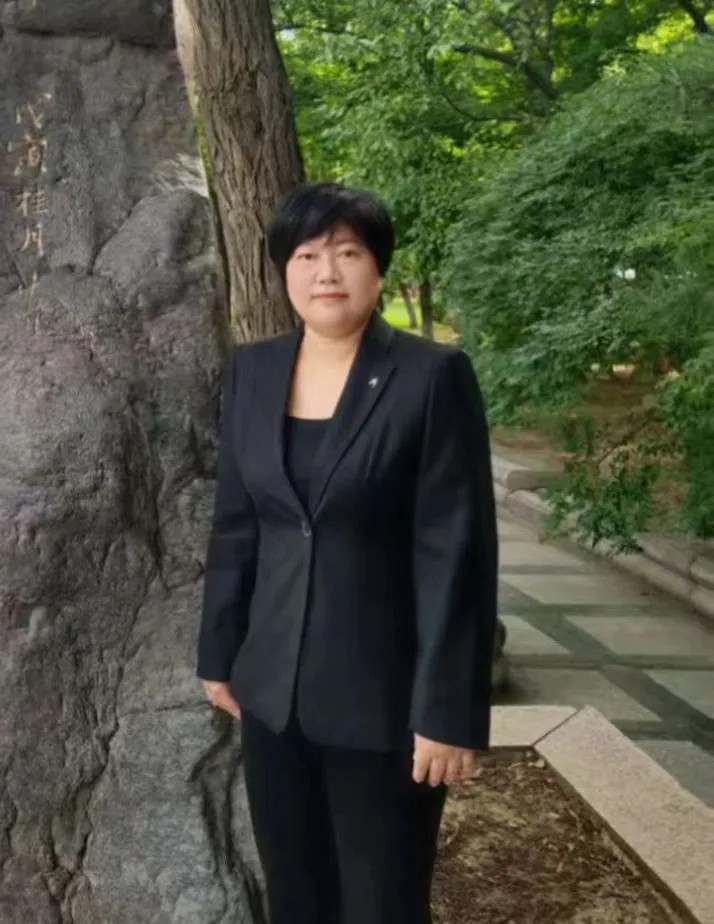
Introduction to the Project Leader: Fu Yunpeng, Professor at the School of Economics. She holds a Doctorate in Economics and a Postdoctoral Fellowship in Statistics. She is a Doctoral Supervisor in Statistics, and a Master’s Supervisor in Quantitative Economics, Statistics, and Applied Statistics, as well as a Head Teacher for undergraduate students. She is also a Council Member of the National Association of Industrial Statistics Education (Ethnic Statistics and Data Science Branch).
Project Category: General Project
Project Introduction: At present, China’s future industry development faces problems such as vague standards and specifications and lack of key core technologies. It is urgent to break through the development dilemmas of future industries through technological drive and institutional empowerment. The growth of future industries unfolds against the backdrop of a green and low-carbon future ecological system. Innovating green development models, alongside the new momentum of the digital economy is a key approach to building future industries. This project expands the theoretical interpretation boundary of the traditional economic paradigm of “policy regulation-industrial response” in the existing academic research on green transformation, and balances the conflicts between environmental regulation and innovation incentives. It explores the impact of different technology types at an urban and developmental level of future industries, breaks through the limitations of the current mainstream single analysis of data factors, and expands a new perspective of urban-level influencing factors for future industry research. It clarifies the response mechanism of future industries, which distinguishes them from strategic emerging industries and traditional industries, under the background of green transformation, providing a new path for the development of future industries.
Research Directions of the Leader: Statistical models and their application in economic and social fields.
Main Achievements of the Leader: She has published more than fifty academic papers in journals such as Statistical Research, The Journal of Quantitative & Technical Economics, and Land. She has also published two academic monographs, presided over and completed one youth project of the National Social Science Fund, one general project of the China Postdoctoral Science Fund, and more than ten other provincial-level projects. She has won three Liaoning Provincial Philosophy and Social Science Achievement Awards, one Liaoning Provincial Natural Science Achievement Award, three Shenyang Municipal Philosophy and Social Science Achievement Awards, and three Shenyang Municipal Natural Science Achievement Awards.
Project Name: Research on the Knowledge Production Mechanism and Path of Government Procurement of Artificial Intelligence Services

Introduction to the Project Leader: Dong Yang, Director of the Department of Public Administration, Associate Professor, and Master’s Supervisor at the School of Public Administration, Liaoning University. She also works part-time as an Associate Researcher at the National Governance Research Institute of Peking University, an Associate Researcher at the Performance Evaluation Center of Peking University, a Council Member of the Liaoning Provincial Administrative Management Society, and a Member of the Social Policy Research Professional Committee of the Chinese Sociological Society.
Project Category: General Project
Project Introduction: Government procurement of services is an inevitable link between the development of emerging technologies and national governance innovation. However, the dynamic allocation of artificial intelligence services brings significant uncertainty shocks to government procurement of services. How to make public organizations more efficient, fair, and sustainable through government procurement of artificial intelligence services depends on the knowledge contribution of different subjects, knowledge interaction based on trust, and the knowledge allocation structure regulated by public organizations. This project constructs a “role-behavior-relationship” analytical framework, analyzing the subject structure and behavioral interaction logic of the government and artificial intelligence service providers in knowledge generation, use, and management, systematically constructing a knowledge production mechanism and its evaluation system, and exploring how institutional arrangements coordinate knowledge collaboration and risk governance among multiple subjects. The research aims to reveal the new characteristics of knowledge governance in public service outsourcing under the background of artificial intelligence, and provide theoretical support and practical solutions for improving intelligent governance capabilities and institutional supply efficiency.
Research Directions of the Leader: Marketization of public services, government performance management, digital government, governance and evaluation of non-profit organizations.
Main Achievements of the Leader: She has presided over more than ten projects, including youth projects and general projects of the National Social Science Fund, and provincial and ministerial-level projects. She has published more than twenty academic papers in journals such as Chinese Public Administration, Governance Research, and Administrative Forum, and has published and participated in the compilation of three works. She presided over one provincial first-class course; won one Shenyang 25th Philosophy and Social Science Achievement Award, and four national and provincial competition awards; and was awarded honors such as Shenyang Philosophy and Social Science Young Talent and Liaoning University Young Top Talent.
Project Name: Research on Legal Issues Concerning the Enforcement of Data Property Rights

Introduction to the Project Leader: Zhang Yue, Doctor of Procedural Law from Ritsumeikan University (Japan), Lecturer and Graduate Supervisor at the Law School of Liaoning University. She is the Leader of Liaoning Provincial Undergraduate First-Class Courses, a Core Member of National Undergraduate First-Class Courses, a Legal Consulting Expert of the Political and Legal Committee of the Shenyang Municipal Committee, a Council Member of the Civil Procedure Law Research Association of the China Law Society, a Council Member of the Legal Logic and Evidence Law Research Association of the Liaoning Law Society, and a Visiting Researcher at the Japan Research Center of Liaoning University. She is also a Member of the Liaoning Huang Danian-style Teaching Team, the Liaoning Provincial Education System Advanced Collective, and the Liaoning Excellent Graduate Supervisor Team.
Project Category: General Project
Project Introduction: The national strategy for the digital economy has identified the market-oriented allocation of data elements as a core issue. China’s Twenty Guidelines on Data proposes a three-rights separation model, including the right to hold data resources, the right to process and use data, and the right to operate data products. However, the current civil enforcement system is still constructed based on the traditional theory of real rights, which conflicts with the non-exclusivity, replicability, and scenario-dependent value of data property rights in three aspects. The essence of the above conflicts is the structural disconnection between the new data rights system and the enforcement rules under the real right-obligation dichotomy framework in terms of subject qualification of the subject matter, ownership review, and value disposal. The research topic proposes a theoretical framework of decentralized enforcement, breaking through the constraints of real right jurisprudence, and constructing a decentralized gradient enforcement system. Through theoretical and institutional innovation, it fills the procedural law implementation gap of the Twenty Guidelines on Data, establishes a judicial guarantee loop for data elements, and serves the national strategy of building a unified national data market.
Research Directions: Her research field is civil procedure law, with a focus on the civil judicial system and the civil enforcement system.
Main Achievements of the Leader: She has presided over a number of provincial and ministerial-level projects, such as the Liaoning Provincial Social Science Planning Fund, the ministerial-level research project of the China Law Society, and the Liaoning Provincial People’s Procuratorate. She has published more than ten high-quality papers and her monograph Research on Online Court Trial Live Broadcasting was selected into the Excellent Achievement Library of the China Law Society. She has won the Amano Kazuo Award (Japan) and the Hirai Kichiro Overseas Researcher Support Award (Japan). The policy advice she wrote has been approved and adopted by provincial-level authorities on many occasions, promoting the innovation of the rule of law practice and social governance.
Project Name: Research on the Impact of Educational Anxiety on Fertility Decisions of Urban Families

Introduction to the Project Leader: Yang Nan, Associate Professor and Master’s Supervisor at the School of Public Administration, Liaoning University. She is a Member of the Social Policy Professional Committee of the Chinese Sociological Society, an Executive Director of the East Asian Social Policy Research Association (EASP), a Member of the Editorial Board of the Social Policy Review journal, and a Member of the Political Consultation and Policy Research Working Committee of the Liaoning Provincial Committee of the China Zhi Gong Party. She obtained her undergraduate degree from the University of Paris (France), and her master’s and doctoral degrees from the Department of Social Policy, University of York (UK).
Project Category: General Project
Project Introduction: Against the backdrop of the normalization of low fertility rates and the prevalence of educational pressure, educational anxiety has become an important factor affecting family fertility intentions. This study aims to reveal the impact mechanism between education and fertility, analyze how the educational burden is transformed into the actual pressure on families, and further affect family fertility decisions. Through systematic research on this issue, the project will provide an analytical paradigm for the theoretical integration of the sociology of education and the sociology of population. At the same time, it will provide theoretical basis and practical countermeasures for optimizing the education system, alleviating the pressure of family upbringing, and improving fertility support policies, which is of great practical significance for building a child-friendly society and promoting high-quality population development.
Research Directions: Her main research directions include population policy and family policy, social policy theory and institutional innovation, and international comparative research on social policy.
Main Achievements of the Leader: In recent years, she has presided over a number of projects such as the Liaoning Provincial Social Science Fund. Her research results have been published in international high-level SSCI journals such as Political Studies, Social Policy & Society, and Journal of Asian Public Policy. She has also participated in the compilation of two English monographs. Her research results focus on family policy, population policy, and the comparison of East Asian welfare systems. A number of policy suggestions have been adopted by the National Committee of the Chinese People’s Political Consultative Conference (CPPCC) and the Liaoning Provincial Committee of the CPPCC, and have received instructions from provincial leaders.
Project Name: Research on the Dynamic Coordinated Development of the Basic Endowment Insurance System and Population Age Structure
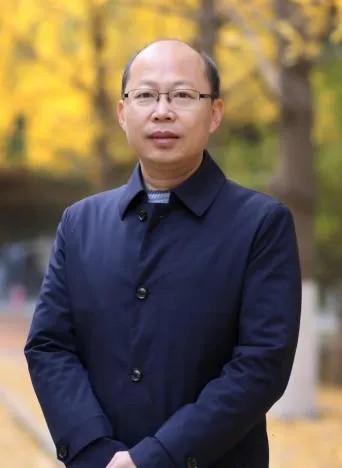
Introduction to the Project Leader: Bian Shu, Second-level Professor, Deputy Secretary of the Party Committee and Dean of the School of Public Administration, Liaoning University, and concurrently Director of the Population Research Institute. He is a Council Member of the China Social Security Association, Vice President of the National Pension Branch, Executive Council Member of the China Population Association, Vice President of the Liaoning Provincial Sociological Society, Vice President of the Liaoning Provincial Administrative Management Society, and Vice President of the Shenyang Social Work Federation. He is also a Member of the 7th Decision-Making Advisory Committee of the Liaoning Provincial Party Committee and Government, and a Member of the Shenyang Municipal Committee of the Chinese People’s Political Consultative Conference (CPPCC). He is an Expert in the Training and Education of Civil Servants in Liaoning Provincial Administrative Organs, and a Member of the Academic Committee of the Social Security Research Center of Wuhan University, a key research base of humanities and social sciences of the Ministry of Education.
Project Category: General Project
Project Introduction: Promoting the dynamic coordination between the population age structure and the basic endowment insurance system is a core issue for achieving high-quality development of population and social security. Currently, the increasingly aging population age structure and the risk of imbalance between revenue and expenditure of the basic endowment insurance coexist, leading to a double imbalance in their sustainable development. In response to this, from the perspective of the long-term sustainable evolution of the mutual promotion and optimization of the population age structure and the basic endowment insurance system, this project promotes the improvement of the endowment insurance system through the rationalization of the population age structure, and at the same time helps optimize the population age structure by adjusting the endowment insurance system. It consists of a three-in-one research framework of theoretical deconstruction-model construction-path design, the systematic deconstruction of the dialectical relationship between the dual operation structure of the basic endowment insurance and the four-dimensional measurement system of the population age structure; designs a dynamic coordination model between the basic endowment insurance system and the population age structure; measures the coordination degree of the two and designs corresponding collaborative governance paths. The purpose of this project is to improve China’s population development strategy, strengthen the resilience of the basic endowment insurance system, and enhance the efficiency of mutual assistance and the function of income redistribution.
Research Directions: Social security theory and policy; population, resources and environmental sustainable development policy.
Main Achievements of the Leader: He has presided over more than sixty projects, including the National Natural Science Foundation of China, the National Social Science Foundation of China, and major projects of the key research bases of humanities and social sciences of the Ministry of Education. He has published more than a hundred and thirty academic papers in journals such as Economic Research Journal, Public Finance Research, and Xinhua Digest. He has published three works and participated in the compilation of more than ten works and teaching materials. A number of policy advice reports have been adopted and approved by the National People’s Congress (NPC) and provincial leaders. His scientific research achievements have won more than thirty academic awards, such as the Excellent Achievement Award for Scientific Research in Humanities and Social Sciences in Institutions of Higher Education (Ministry of Education) and the Liaoning Provincial Philosophy and Social Science Achievement Award.
Project Name: Research on the Reception and Evolution of Russian-Soviet Literary Theory by Chinese Left-Wing Literature
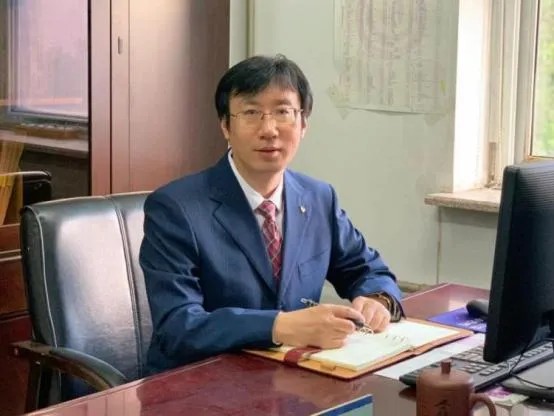
Introduction to the Project Leader: Hou Min, Professor and Doctoral Supervisor at the School of Chinese Language and Literature, Liaoning University. He currently serves as the Vice Dean of the School of Chinese Language and Literature, Liaoning University. He also holds concurrent positions as a Communication Review Expert of the National Social Science Fund, a Review Expert of the Liaoning Provincial Government Award, a Council Member of the Liaoning Provincial Literary Critics Association, and a Council Member of the Liaoning Provincial Aesthetics Association. He has been awarded titles such as Excellent Master’s Thesis Supervisor of Liaoning Province, Senior Talent of Shenyang City, and Young Top Talent of Liaoning University.
Project Category: General Project
Project Introduction: This project aims to investigate the complex patterns presented in the process of Chinese Left-Wing Literature’s reception and evolution of Russian-Soviet literary theory in the 1930s and 1940s, identify the erroneous phenomena existing therein, explore the complex issues contained within, and reveal the underlying political, economic, and historical-cultural driving forces by combining the Chinese and Russian historical and cultural contexts. This research strives to break through the previous academic paradigm that focused on influence studies and, based on the ontology of Left-Wing Literature, focuses on exploring the complex patterns of the localization of Russian-Soviet literary theory in China from the perspective of reception studies. This research closely centers on core concepts such as the localization of Marxism in China, proletarian literature, the popularization of literature and art, and socialist realism, and provides a new interpretation of the issue of Left-Wing Literature’s reception and evolution of Russian-Soviet literary theory. This not only helps to further clarify the complex connection between Left-Wing and Russian-Soviet literature, but is also conducive to China and Russia, as well as other countries around the world, to learn from history and achieve further friendly exchanges and cooperation in politics, economy, culture, and other fields.
Research Directions: Chinese Left-Wing Literature, Sino-Russian literary relations, Marxist literary theory.
Main Achievements of the Leader: He has published more than forty papers in authoritative journals such as Literary Review, Modern Chinese Literature Studies, China Social Sciences Evaluation, Social Science Journal, and New Literary History Materials. Many of her achievements have been reprinted by Renmin University Photocopied Materials and Xinhua Digest. He has published three monographs, presided over two National Social Science Fund projects and more than twenty provincial and ministerial-level projects. He has won many awards, including the Liaoning Provincial Philosophy and Social Science Achievement Award, the Liaoning Provincial Undergraduate Teaching Achievement Award, and the Liaoning Provincial Aesthetics and Literature and Art Research Achievement Award.
Project Name: Systematic Collation of Anti-Japanese United Army Newspaper and Periodical Historical Materials and Research on the CPC’s Anti-Japanese War Discourse System (1931-1945)

Introduction to the Project Leader: Feng Lu, Doctor of Literature, Associate Professor and Master's Supervisor at the School of Journalism and Communication, Liaoning University. She is a Member of the Chinese Association of Comparative Literature and Art Theory, a Member of the Jilin Provincial Northeast Anti-Japanese United Army Research Association, and a Member of the Association for Education in Journalism and Mass Communication (AEJMC, USA). She has been a Visiting Scholar at the University of Missouri (USA) and a Senior Trainee of the Japan Dentsu-Ministry of Education, China Chinese Advertising Talent Training Fund Project.
Project Category: General Project
Project Introduction: This research topic collects and collates the newspaper and periodical historical materials of the Anti-Japanese United Army (formerly the Anti-Japanese Guerrilla Army and the Northeast People’s Revolutionary Army) and the CPC Manchurian Provincial Committee (collectively referred to as the Anti-Japanese United Army Newspapers and Periodicals) from 1931 to 1945. From the perspective of discourse system construction, it summarizes the practical experience and theoretical contributions of the Anti-Japanese United Army Newspapers and Periodicals in the construction of the CPC’s Anti-Japanese War discourse system. The core concept is the CPC’s Anti-Japanese War Discourse System, which refers to a set of discourse expression systems constructed by the Communist Party of China during the Anti-Japanese War around the Anti-Japanese propositions, strategies and tactics, and the national united front, based on Marxist theory and Chinese revolutionary practice, to achieve the goal of the Anti-Japanese War. Based on the combat experience of the Anti-Japanese United Army Newspapers and Periodicals during the 14-year Anti-Japanese War, the research topic proposes the basic attributes of the CPC’s Anti-Japanese War Discourse System: it is a discourse system based on the historical facts of the Anti-Japanese War; it is a discourse system that adheres to the CPC’s cultural leadership and the cultural subjectivity of the Chinese nation; and it is a discourse system that can realize the organic connection between tradition and modernity. The research topic will leverage the advantages of digital humanities research methods to establish a relatively complete and systematic database of Anti-Japanese United Army Newspaper and Periodical historical materials, laying a solid foundation for deepening the research on the history of the Anti-Japanese United Army press and providing a theoretical basis for the construction of China’s discourse system in the new era.
Research Directions: History of Anti-Japanese War journalism, cultural research methodology.
Main Achievements of the Leader: She has presided over and completed one project of the Humanities and Social Sciences Fund of the Ministry of Education and four projects of the Liaoning Provincial Social Science Planning Fund. She has published a number of papers in CSSCI journals such as Literary Contention and Nanjing Social Sciences, and her works have been fully reprinted by Renmin University Photocopied Materials. Her representative paper Moral Panics and Violent Public Opinions Caused by the Pandemic was selected for the annual meeting of AEJMC (2021) in communication studies. Her representative works include History of the Northeast Anti-Japanese United Army (People’s Publishing House, 2025) and Empiricism and Criticism: The Debate on Cultural Research Methodologies between the Columbia School and the Frankfurt School (Social Sciences Academic Press, 2019), which won the Liaoning Provincial Philosophy and Social Science Achievement Award.
Project Name: Research on the Multi-Subject Collaborative Governance Mechanism of County-Level Tourism Destinations
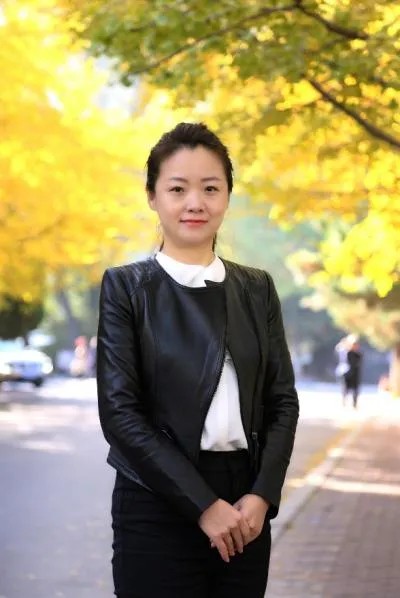
Introduction to the Project Leader: Wang Haihong, Professor, Director of Scientific Research of the Tourism Management Department, and Master’s Supervisor at the School of Business, Liaoning University. She holds a Doctorate in Management from Renmin University of China, a Postdoctoral Fellowship from the China Tourism Academy, and has been a Visiting Scholar at Colorado State University (USA). She also serves as an Unannounced Expert Reviewer for the National All-for-One Tourism Demonstration Zones of the Ministry of Culture and Tourism of the People’s Republic of China, an Expert of the Expert Committee of the China Tourist Attractions Association, and a Member of the Cultural and Tourism Integration Expert Database of the Liaoning Provincial Department of Culture and Tourism.
Project Category: General Project
Project Introduction: The report of the 20th National Congress of the Communist Party of China clearly stated that it is necessary to further promote the modernization of the national governance system and capacity. Counties are important basic units for realizing governance modernization, and county-level tourism destinations is a typical scenario among them, characterized by multiple subjects and complex interests. This project focuses on the urgent issues in the field of county-level tourism governance, such as insufficient interest coordination and lack of collaborative mechanisms, and constructs a Government-Enterprise-Community-Tourist (GECT) four-element collaborative model. It aims to deeply reveal how to promote the effective operation of collaborative governance through the value of a co-creation mechanism in the interaction of multiple subjects, and at the same time explore the dynamic adaptation path between the governance mechanism and the county-level tourism context. The research results will expand the application of value co-creation and collaborative theories in the field of public governance, and provide important theoretical support and practical solutions for promoting the modernization of county governance and the high-quality development of tourism destinations.
Research Directions: Tourism destination governance and brand internalization.
Main Achievements of the Leader: She has presided over two general projects of the National Social Science Fund, one key project of the provincial social science planning, and a number of provincial and ministerial-level projects. Her research results have been published in authoritative international tourism management journals included in SSCI, such as Journal of Hospitality and Tourism Management and International Journal of Tourism Research. She has published three monographs and teaching materials. Her research results have won eight academic awards, including the Liaoning Provincial People’s Government Philosophy and Social Science Achievement Award. Her policy advice has been approved by provincial and ministerial-level leaders and adopted on three occasions.
Project Name: Research on the Endogenous Mechanism and Path of Urban Agglomeration Spatial Structure Optimization under the Background of National Unified Large Market Construction

Introduction to the Project Leader: Rong Ying, Doctor of Economics, Lecturer and Master’s Supervisor at the School of Economics, Liaoning University, and a Top Talent of Shenyang City.
Project Category: Youth Project
Project Introduction: Urban agglomerations are the main spatial carriers of China’s urbanization. Studying the evolutionary characteristics and influencing factors of the spatial structure of urban agglomerations is of great significance. Only a reasonable spatial structure of urban agglomerations can improve the level of coordinated development. However, the current development of urban agglomerations often faces practical obstacles such as administrative barriers, market segmentation, and institutional differences. The construction of a national unified large market is an integrated initiative to break local protectionism and market segmentation, and promote the efficient allocation and free flow of resources, which can provide practical possibilities for optimizing the spatial structure of urban agglomerations. Based on the above research background, this project intends to focus on studying the endogenous mechanism, path design, and policy coordination system of urban agglomeration spatial structure optimization under the background of the construction of a unified large market, so as to provide theoretical support and practical solutions for building a national unified large market at a higher level and promoting the coordinated development of urban agglomerations at a higher level.
Research Directions: Evolution of regional economic policies, capital accumulation system, and spatial political economy.
Main Achievements of the Leader: She has published a number of academic papers in journals such as Economic Research Journal and Economic Perspectives, some of which have been reprinted by Renmin University Photocopied Materials. She has written a number of policy advice reports that have received positive comments from provincial and ministerial-level leaders or been transformed into important documents within the province and proposals for the National People’s Congress and the Chinese People’s Political Consultative Conference (CPPCC). She has presided over one youth project of the Liaoning Provincial Social Science Planning Fund, two projects of the Liaoning Provincial Department of Education, and one youth project of the Shenyang Municipal Social Science Fund. Her research report won the second prize of the Liaoning Provincial Philosophy and Social Science Achievement Award, and her doctoral dissertation won the first prize of the Excellent Doctoral Dissertation of Liaoning University.
Project Name: Research on the Mechanism and Path of Industrial Internet Empowering the Green Transformation of Manufacturing Industry
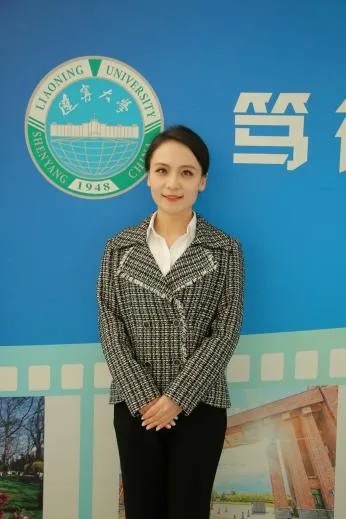
Introduction to the Project Leader: Zhang Ziwei, Associate Professor and Master’s Supervisor at the School of Economics, Liaoning University, Deputy Director of the Department of National Economic Management, Dean of the Liaoning University (Benxi) Urban Research Institute, Researcher at the Liaoning Provincial Regional Economic Development Research Base of Liaoning University, a Young Top Talent in Philosophy and Social Sciences of Liaoning Province. She has been selected into the Philosophy and Social Sciences Expert Database of the Shenyang Municipal Social Science Federation, the Young Talent Database of Philosophy and Social Sciences of Shenyang City, the High-Level Talent Database of Shenyang City, and is an Excellent Instructor for Innovation and Entrepreneurship in Liaoning Province.
Project Category: Youth Project
Project Introduction: This research topic identifies the crux of the insufficient endogenous motivation for enterprises’ green transformation, analyzes how the new technology cluster and platform aggregation attributes of the industrial internet alleviate the externality problems of green transformation in manufacturing enterprises in the links of input, production, output, and supervision. It constructs a mechanism framework, and explores the collaborative driving path. The expectation is to provide a research basis and feasible paths for accelerating the in-depth integration of the industrial internet with various fields of the manufacturing industry in the digital and intelligent era, and for realizing the dual carbon goals and high-quality development.
Research Directions: Regional economy, digital economy, high-quality development, etc.
Main Achievements of the Leader: She has published more than ten high-level papers included in CSSCI and SSCI, and two academic monographs. She has presided over more than ten provincial and ministerial-level projects. A number of her policy advice reports have received positive comments from leaders at or above the deputy provincial level. She has won many awards, including the third prize of the Liaoning Provincial Philosophy and Social Science Award · Achievement Award (the 9th session), the third prize of the Liaoning Provincial Philosophy and Social Science Award · Achievement Award (the 8th session), the Excellent Achievement Award of the 11th Social Science Academic Activity Annual Meeting of Liaoning Province, the first prize of the Excellent Achievement Award of the 9th Social Science Academic Activity Annual Meeting of Liaoning Province, the third prize of the Excellent Achievement Award of the 8th Social Science Academic Activity Annual Meeting of Liaoning Province, and the second prize of the Excellent Project of the Shenyang Municipal Development and Reform Commission.
Project Name: Research on the Construction of the Judicial Review Benchmark System for Risk Administration
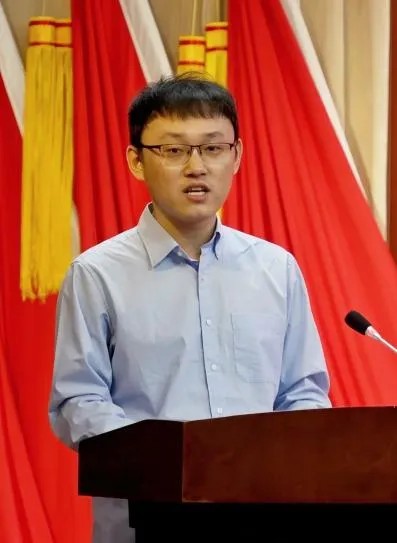
Introduction to the Project Leader: Yu Han, Lecturer and Master’s Supervisor at the Law School of Liaoning University. He serves as an Assistant Researcher at the German Research Center of Beihang University and a Council Member of the Constitutional and Administrative Law Research Association of the Liaoning Law Society.
Project Category: Youth Project
Project Introduction: In a risk society, the functional positioning of administrative organs is undergoing a transformation from danger defenders to risk preventers. This role evolution not only means the expansion of national security protection functions, but also indicates that risk regulation needs to achieve a leap from formal rule of law to substantive rule of law. The 20th National Congress of the Communist Party of China proposed to improve the national security legal system, which has become an important basis for the coordinated evolution of risk regulation and administrative rule of law. However, the traditional legality control model of order-based administration relying on the legal reservation-administrative law enforcement-judicial review framework is encountering structural shocks. In risk regulation, administrative organs have a certain scope of discretion and judgment due to scientific uncertainty, which means that courts find it difficult to conduct substantive review. Although existing studies have made technical revisions to the traditional judicial review model, most of them focus on the introduction of foreign experience. This research topic aims to construct a judicial review benchmark system for risk administration that conforms to the characteristics of China’s administrative litigation.
Research Directions: Administrative law.
Main Achievements of the Leader: He has published a number of academic papers in core journals such as Journal of Northeastern University (Social Science Edition), Forum on Science and Technology in China, and Henan Social Sciences.
Project Name: Archaeological Research on the Pottery-Making Industry in the Capital Area of Goguryeo
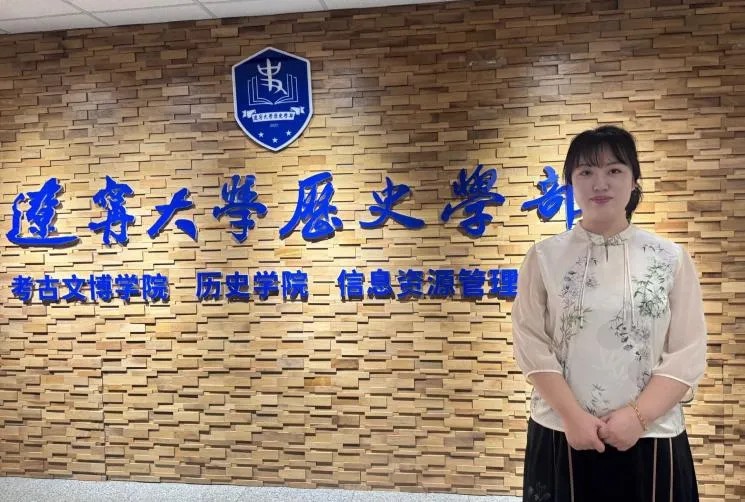
Introduction to the Project Leader: Yang Fan, Lecturer at the School of Archaeology and Museology, Faculty of History. She undertakes courses such as Northeast Asian Archaeology and Introduction to Museology.
Project Category: Youth Project
Project Introduction: Based on the academic needs of constructing the national borderland history discourse system, this project takes the pottery artifacts unearthed in the capital area of Goguryeo as the research object and conducts a systematic archaeological study. The project aims to reveal how the Goguryeo society realized cultural identity and social integration through pottery-making and pottery-using systems based on material cultural relics, thereby providing empirical support for the research on borderland history and ancient governance. The project focuses on exploring three issues: firstly, the absorption and adaptation of advanced Central Plains technologies by Goguryeo in pottery-making processes, and the possible technological concentration phenomenon in official workshops; secondly, the establishment of an indicator system for distinguishing official and private workshops based on differences in clay composition, glaze standardization, and production scale; lastly, the exploration of the corresponding relationship between pottery-making technology characteristics and social stratification. This project provides important support for understanding the interaction model between borderland regimes and the Central Plains dynasties, the technology penetration mechanism of the borderland governance system, and the logic of social integration.
Research Directions: Ceramic archaeology, Goguryeo archaeology, composition analysis.
Main Achievements of the Leader: She has presided over one key project of the Liaoning Provincial Social Science Planning Fund and one horizontal sub-project of the Jilin Provincial Bureau of Cultural Relics.
Project Name: Theoretical Research on the Compilation of an Export-Oriented Chinese Construction Dictionary and the Construction of a Digital Platform

Introduction to the Project Leader: Gu Longfei, Doctor of Literature, Lecturer at the School of Chinese Language and Literature, Liaoning University, and a Member of the Chinese Linguistic Society.
Project Category: Youth Project
Project Introduction: Based on the strategic goal of enhancing the communication power and influence of Chinese civilization and addressing the key needs of international Chinese language education, this research topic takes construction as the core breakthrough point and explores the integration path of language teaching and cultural communication. The project intends to integrate linguistic and learning theories, and natural language processing technology to construct an export-oriented Chinese construction dictionary with a three-dimensional interaction of learners-dictionary-teaching and research personnel, realizing the coordinated development of language acquisition, theoretical construction, and resource sharing. At the same time, the research topic focuses on leveraging the advantages of multi-modality and intelligent means in construction learning, promoting the optimization and upgrading of relevant resources, so as to serve the national language strategy and promote the international communication of Chinese civilization.
Research Directions: Grammar, semantics, international Chinese language education.
Main Achievements of the Leader: She has presided over one youth project of the National Social Science Fund and one project of the Liaoning Provincial Department of Education, and has published a number of papers in CSSCI and other core journals.
The National Social Science Fund plays a guiding and exemplary role in leading the university’s philosophy and social sciences research, cultivating top innovative talents in the field of humanities and social sciences, and enhancing discipline construction. The university will continue to explore innovative practice paths, implement the decision-making arrangements regarding strengthening organized scientific research, and further deepen the management and service of scientific research. Furthermore, it aims to promote interdisciplinary integrated research, effectively stimulate academic vitality, strive to create a high-quality scientific research environment, promote innovation in the subjects of knowledge, theory, method, and application, and actively demonstrate the profound academic heritage and innovative capabilities of the university’s humanities and social sciences, so as to make greater contributions to the university’s Double First-Class construction.